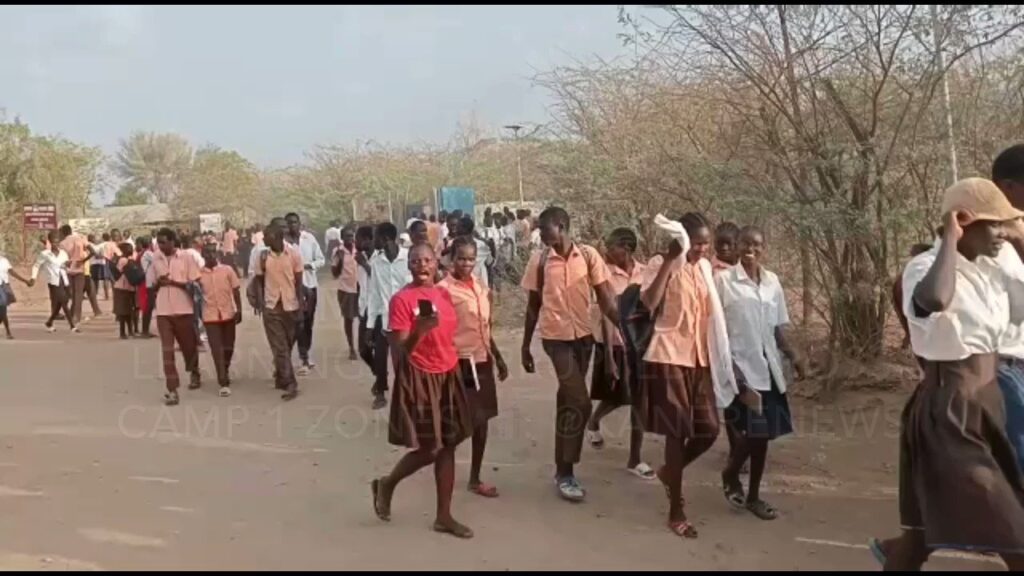In the heart of Kakuma Refugee Camp, where hope can sometimes feel scarce, a powerful force is at work: education. Against all odds, education has become a beacon of light, transforming the lives of thousands of displaced children and adults. In this article, we delve into the inspiring stories and remarkable initiatives that are shaping the educational landscape within Kakuma, and how access to education is empowering individuals to overcome adversity, dream big, and build a brighter future.
Defying the Odds: Pursuing Education in Kakuma
Refugees in Kakuma defy limited resources, overcrowded classrooms, and language barriers to pursue education. Despite facing daunting challenges, the determination to learn prevails. Teachers and NGOs play a crucial role in supporting the educational journey of refugees, providing resources, mentorship, and a supportive environment. Their unwavering dedication highlights the resilience and determination of both educators and students alike.
Academic Triumphs: Breaking the Cycle of Adversity
Triumphs against adversity emerge in Kakuma Camp as students excel academically and secure scholarships. Despite the harsh realities of displacement, education offers a glimmer of hope and opportunity. Scholarships provide access to higher education, breaking the cycle of poverty and opening doors to a brighter future. The transformative power of education is evident as individuals defy expectations and strive for excellence.
Empowering Through Skills: Vocational Training in Kakuma
In addition to traditional education, vocational training programs equip refugees with practical skills in tailoring, carpentry, agriculture, and entrepreneurship. These skills not only provide avenues for self-reliance but also contribute to community development. By empowering individuals with the tools they need to succeed, vocational training programs pave the way for sustainable livelihoods and economic growth within Kakuma Camp.
Cultural Exchange and Social Cohesion Through Education
Education promotes cultural exchange, understanding, and empathy among diverse communities within Kakuma Camp. Collaborative projects and events bring together individuals from different backgrounds, fostering social cohesion and mutual respect. By embracing diversity and celebrating cultural heritage, education becomes a catalyst for unity and solidarity within the camp, transcending barriers and building bridges of understanding.
Conclusion
The stories of resilience, determination, and triumph within Kakuma Refugee Camp underscore the transformative power of education. Despite facing unimaginable challenges, refugees in Kakuma demonstrate unwavering perseverance and a commitment to building a better future. Through education, they defy the odds, break down barriers, and inspire hope for generations to come.
FAQs
- How do refugees access education in Kakuma Camp? Refugees in Kakuma Camp access education through support from teachers and NGOs, who provide resources and mentorship to overcome challenges.
- What impact does education have on refugees’ lives in Kakuma? Education in Kakuma Camp offers refugees opportunities for personal growth, academic excellence, and access to scholarships, breaking the cycle of poverty and empowering individuals to dream big.
- Are there opportunities for vocational training in Kakuma Camp? Yes, vocational training programs in Kakuma Camp offer practical skills in various fields such as tailoring, carpentry, agriculture, and entrepreneurship, fostering self-reliance and community development.
- Why is cultural exchange important in education within Kakuma Camp? Cultural exchange promotes understanding, empathy, and social cohesion among diverse communities within Kakuma Camp, bridging gaps and fostering a sense of unity and solidarity.
- How can individuals support educational initiatives in Kakuma Camp? Individuals can support educational initiatives in Kakuma Camp by volunteering, donating resources, or advocating for policies that prioritize access to quality education for refugees.




